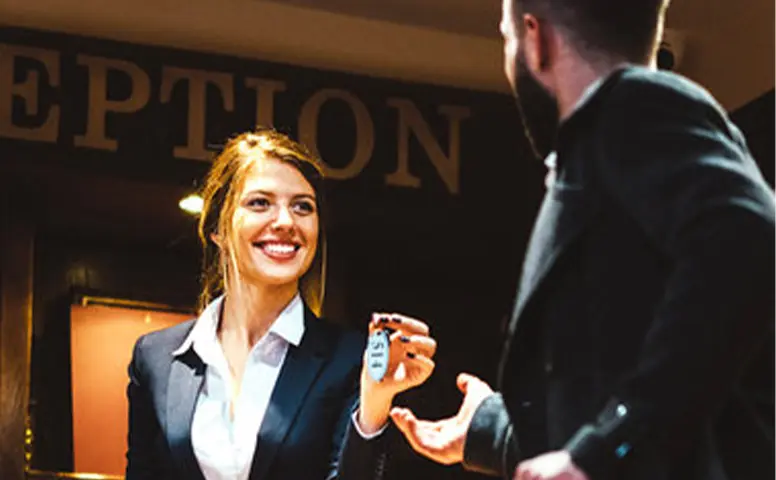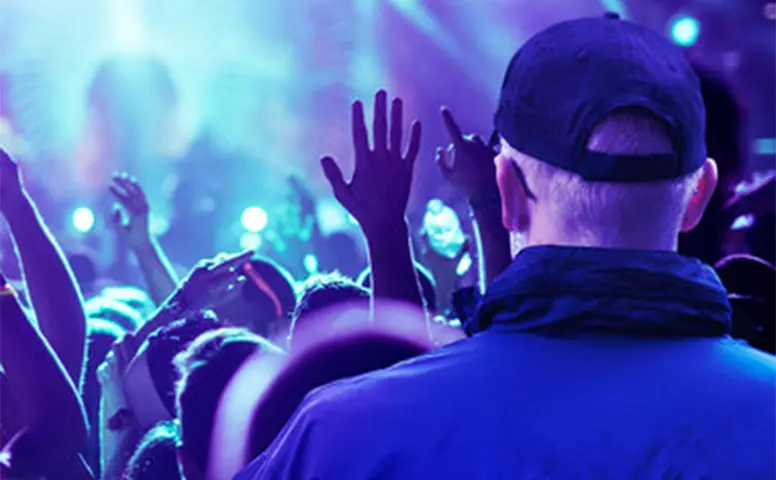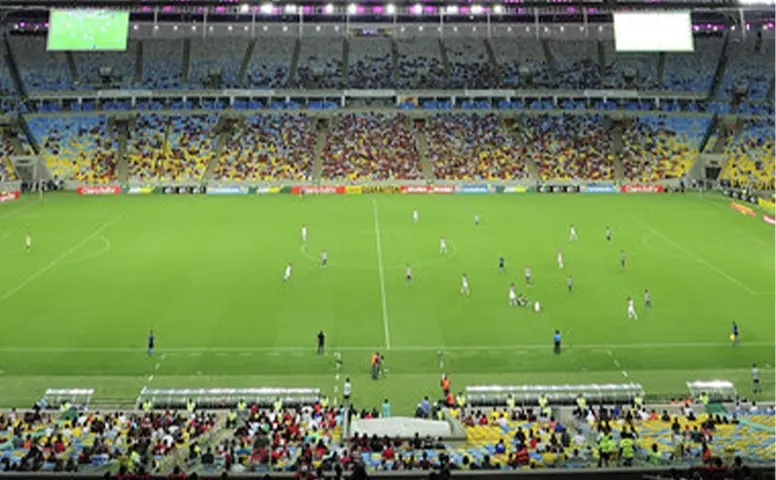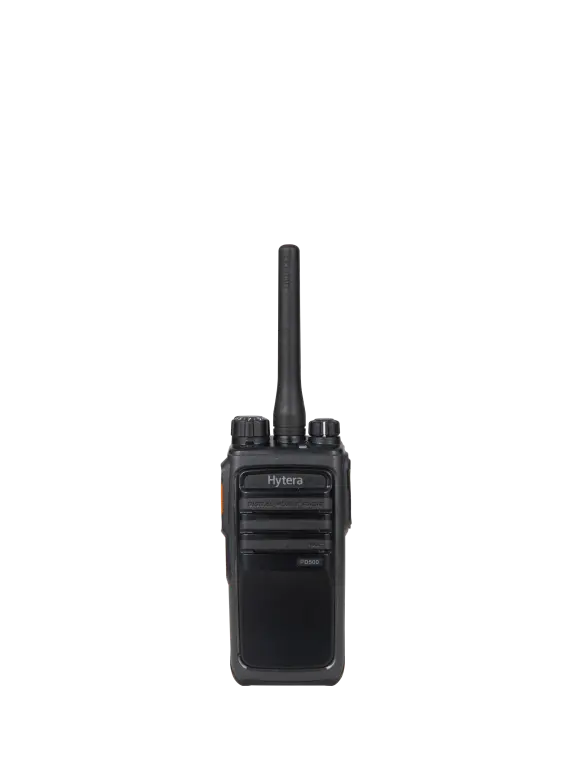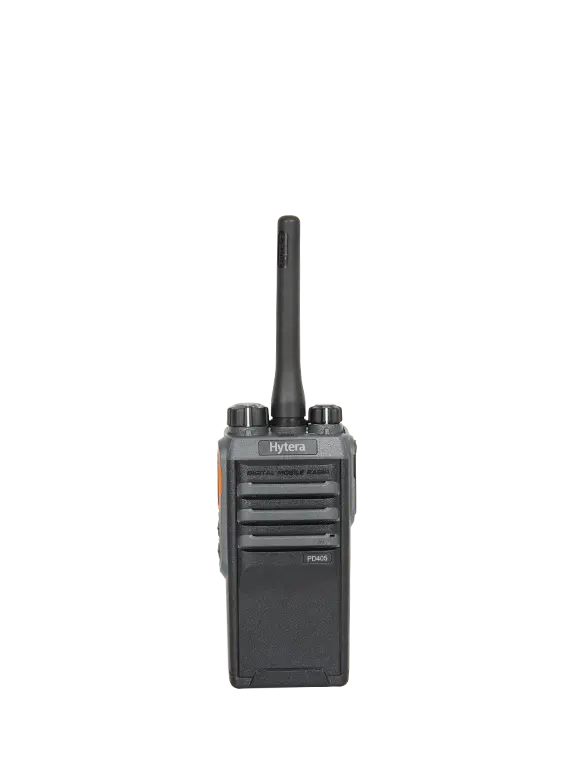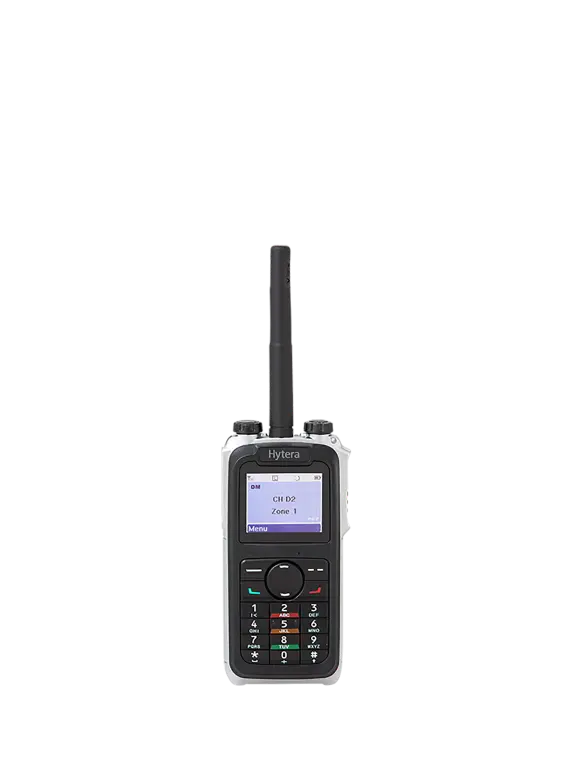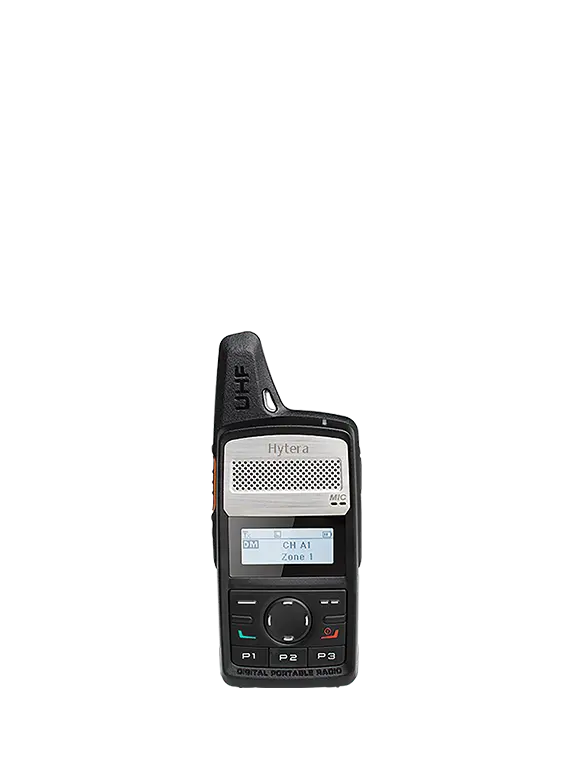
Nâng Cao Trải Nghiệm Khách Hàng
Ngành nhà hàng – khách sạn và sự kiện bao gồm các khách sạn, khu nghỉ dưỡng, nhà hàng, bar, rạp chiếu phim, sân vận động và trung tâm hội nghị. Trong môi trường cạnh tranh cao, trải nghiệm khách hàng là yếu tố sống còn.
Việc phản hồi nhanh, phối hợp hiệu quả giữa các bộ phận như lễ tân, phục vụ, an ninh, kỹ thuật... quyết định chất lượng dịch vụ. Trang bị bộ đàm chuyên dụng giúp nhân viên giữ kết nối liên tục, xử lý tình huống tức thì và nâng cao sự hài lòng của khách.
Hytera cung cấp giải pháp bộ đàm mạnh mẽ, thiết kế riêng cho môi trường dịch vụ – giúp doanh nghiệp tối ưu vận hành, đảm bảo an toàn và phục vụ chuyên nghiệp.
Ứng dụng theo ngành
-
![Khách sạn và Khu nghỉ dưỡng]()
Khách sạn và Khu nghỉ dưỡng
-
![Nhà hàng, Quán bar và Câu lạc bộ đêm]()
Nhà hàng, Quán bar và Câu lạc bộ đêm
-
![Địa điểm tổ chức sự kiện và Giải trí thể thao]()
Địa điểm tổ chức sự kiện và Giải trí thể thao

Nâng Cao Hiệu Quả Vận Hành
Chất lượng dịch vụ là yếu tố cốt lõi trong ngành nhà hàng – khách sạn & Sự kiện. Giao tiếp nội bộ thông suốt giúp quản lý và nhân viên phối hợp nhanh chóng, xử lý yêu cầu kịp thời và mang đến trải nghiệm tốt nhất cho khách hàng.
-
Phối Hợp Hiệu Quả Hơn
Liên lạc nhóm qua bộ đàm là yếu tố then chốt để cung cấp dịch vụ kịp thời trong khách sạn, nhà hàng cũng như phản ứng nhanh với nhu cầu của khách hàng hay kiểm soát đám đông tại sự kiện thể thao và địa điểm lớn.
-
Liên Lạc Tức Thời
Liên lạc nhóm qua bộ đàm đóng vai trò thiết yếu trong việc cung cấp dịch vụ nhanh chóng tại khách sạn, nhà hàng, cũng như đáp ứng kịp thời nhu cầu của khách hoặc điều phối đám đông tại các sự kiện thể thao và địa điểm đông người.
-
Quản Lý Công Việc Hiệu Quả
Bộ đàm hỗ trợ tạo phiếu công việc, gửi tin nhắn trạng thái và tích hợp hệ thống quản lý quy trình, giúp dễ dàng phân công nhiệm vụ, sắp xếp nhân sự phù hợp và xác nhận khi công việc được hoàn thành.
-
Vận Hành Không Dây Rảnh Tay
Công nghệ Bluetooth tích hợp cho phép nhân viên sử dụng tai nghe không dây một cách kín đáo, giúp họ giữ liên lạc với quản lý và đồng nghiệp mà vẫn thoải mái phục vụ khách hàng.

Tăng Cường An Toàn Cho Nhân Viên
Bộ đàm có thể tích hợp nhiều tính năng an toàn như gọi khẩn cấp và gửi cảnh báo tự động, giúp nhân viên trong ngành dịch vụ được bảo vệ tốt hơn trong quá trình làm việc.
-
Nút Khẩn Cấp Trên Bộ Đàm
Bộ đàm được trang bị nút khẩn cấp (panic button), có thể lập trình để gửi cảnh báo đến trung tâm điều hành và các thiết bị khác, kèm theo mã định danh của người phát tín hiệu. Tính năng này hỗ trợ phản ứng nhanh và chính xác trong các tình huống nguy hiểm.
-
Cảnh Báo Ngã và Làm Việc Một Mình
Tính năng Man Down sẽ tự động kích hoạt cảnh báo khi người dùng bị ngã và bộ đàm ở tư thế nằm ngang. Trong khi đó, tính năng Lone Worker sẽ gửi cảnh báo nếu bộ đàm không hoạt động trong khoảng thời gian đã được cài đặt trước, giúp giám sát tốt hơn nhân viên làm việc một mình.
-
Dịch Vụ Định Vị
Bộ đàm tích hợp GPS cho phép xác định và theo dõi vị trí người dùng khi làm việc ngoài trời. Trong môi trường trong nhà, có thể sử dụng các thiết bị định vị nội bộ hoặc kết nối Wi-Fi để theo dõi vị trí của nhân viên một cách chính xác và hiệu quả.
-
Body Camera
Nhân viên bảo vệ và lễ tân được trang bị Bodycam (Camera đeo người) có thể ghi lại các sự cố xảy ra trong quá trình làm việc. Thiết bị này cũng giúp giảm căng thẳng trong nhiều tình huống, vì khi biết mình đang bị ghi hình, mọi người thường có xu hướng bình tĩnh hơn.

Kết Nối Ổn Định Vượt Trội
Hệ thống bộ đàm riêng cung cấp vùng phủ sóng di động ổn định và tin cậy hơn nhiều so với mạng di động thông thường, đảm bảo khả năng liên lạc liên tục. Công nghệ PoC (Push-to-Talk qua mạng băng rộng) còn cho phép mở rộng mạng lưới, đáp ứng linh hoạt nhu cầu liên lạc ở các khu vực xa hoặc phức tạp.
-
Vùng Phủ Sóng RF Ổn Định
Mạng bộ đàm riêng giúp triển khai vùng phủ sóng và dung lượng truyền tải chính xác tại những khu vực cần thiết, loại bỏ hoàn toàn các điểm mất sóng trong khách sạn, sân vận động hay khu vực tổ chức lễ hội, đảm bảo liên lạc ổn định ở mọi vị trí.
-
Gọi Nhóm Hiệu Quả
Bộ đàm hỗ trợ gọi nhóm, giúp quản lý trong ngành dịch vụ dễ dàng liên lạc với nhiều nhân viên cùng lúc. Tính năng này giúp tiết kiệm thời gian, tăng hiệu quả vận hành và nâng cao chất lượng phục vụ khách hàng.
-
Kết Nối Hệ Thống Cảnh Báo
Bộ đàm có thể kết nối với các thiết bị cảnh báo như cảm biến khói hoặc hệ thống báo động xâm nhập, giúp gửi thông tin ngay lập tức đến đúng người cùng với vị trí sự cố. Nhờ đó, đội nhóm phản ứng kịp thời và hiệu quả hơn.
-
Body Camera
Nhân viên an ninh trang bị bodycam (camera đeo người) có thể ghi lại các sự cố hoặc bất thường khi làm nhiệm vụ. Khi có kết nối Wi-Fi hoặc mạng băng rộng, video có thể được truyền trực tiếp về trung tâm điều hành, giúp nâng cao khả năng giám sát và phản ứng tình huống.




